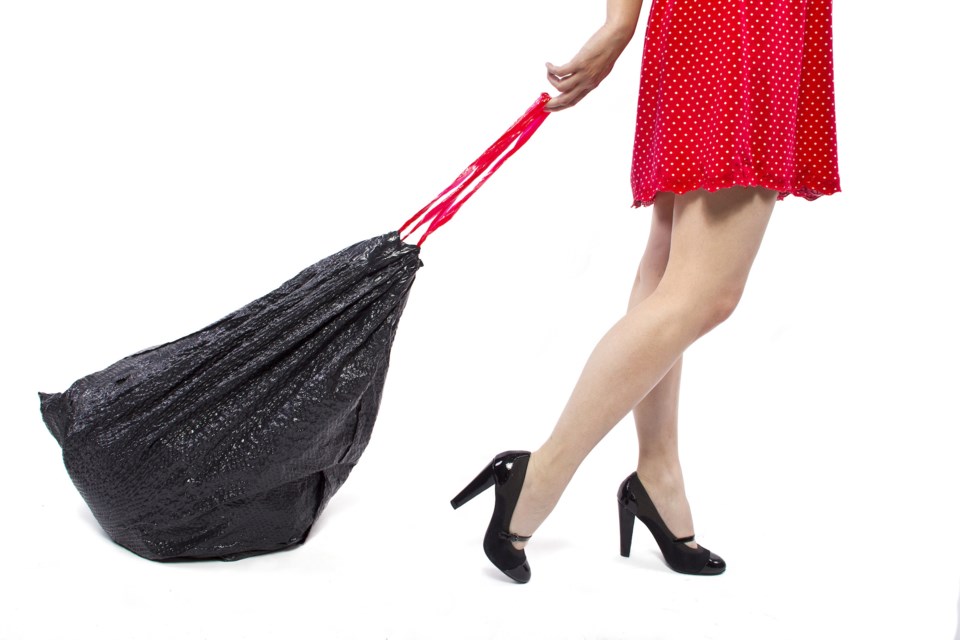Sault Ste. Marie City Council agreed Monday night to look at turning all residential trash collection over to the private sector.
Since 1965, when the townships of Korah and Tarentorus amalgamated with Sault Ste. Marie, the city has split waste collection between municipal workers and private contractors.
City workers pick up trash at 12,300 properties in the core area bounded to the west by Goulais Avenue, to the east by Boundary Road and to the north by Second Line.
All other neighbourhoods are serviced by Municipal Waste and Recycling Consultants Inc. (MWRC) which operates under contract to the city.
The city's current contract with MWRC expires on July 29, 2019.
Councillors had initially been asked Monday to stipulate that the upcoming request for proposals continue the existing hybrid system using both city workers and a private contractor.
But Ward 3 Councillor Matthew Shoemaker convinced them to also consider full privatization of garbage pickup.
When collection routes for the amalgamated city were set up 53 years ago, the split between public and private collection was pretty much equal.
Since then, most of the growth has occurred in the outer parts of the municipality served by contractors.
The most recent numbers compiled by the city show 14,560 pickups by contractors, compared to 12,307 pickups by city workers.
The city's annual labour, equipment and fuel costs for each stop is $39.38, compared to $33.70 for MWRC.
Susan Hamilton Beach, director of public works, proposed saving $2.38 per stop by balancing out collection routes so both the city and contractor have 13,433 stops each.
Councillor Shoemaker nonetheless expressed concern that as many as three collection trucks are visiting each address: one for trash, one for recycling and one for lawn and garden waste during summer and fall.
"It seems very inefficient to do it that way," Shoemaker said.
But Hamilton Beach warned the three waste streams can't be mixed and require either separate vehicles or split vehicles capable of isolating the streams.
The hybrid approach is used by many municipalities because it creates an atmosphere of competition, encouraging public-sector employees to operate with the efficiency of private contractors, while motivating the private sector to provide better pricing.
"The split model reduces the exposure of the municipality to possibly higher costs in the future, in the case of a private-sector monopoly," Hamilton Beach said in a report to City Council.
Lowballing?
The first bids in a fully privatized system may seem favourable, Hamilton Beach said, but the second round of bids may be something very different.
"Once you get out of the business it's very, very difficult to get back into it, because there's a significant cost to it," said Larry Girardi, deputy chief administrative officer, public works and engineering services.
The city's public works department uses four full-time staff and five collection trucks, one a spare and two others dedicated to leaf and yard waste.
If the city decides to get out of the waste collection business, the future of leaf and yard waste would also have to be decided, since the city currently provides this service as needed during the growing season.
Sudbury currently operates a hybrid waste collection system similar to Sault Ste. Marie's.
Trash in Thunder Bay and Timmins is handled entirely by city workers.
North Bay is the only community in the north that's serviced 100 per cent by contractor, but interestingly, the cost per stop there is higher than the Sault's at more than $40 a stop, Hamilton Beach said.
No more unlimited holiday collections
In other news, City Council voted Monday to end its practice of waiving curbside bag limits during the holiday season.
Instead, residents will be allowed to put out double the maximum limit at that time of year: four bags or four 121-litre waste containers.
Mike Blanchard, the city's waste management manager, said some residents and small businesses took advantage of the situation by putting out waste that they'd been collecting over previous weeks.
"The intent of this service is to allow for the additional waste generated throughout the holiday season only," Blanchard said.
City workers noticed other abuses over the holidays:
- many residents stopped recycling
- many containers exceeded the weight limit
- proper bags and waste containers weren't used
- more paints, aerosols and other refuse that belonged at the Household Hazardous Waste Depot were ending up in collected trash
- multi-family bins were overflowing with waste
- both MWRC and city collection crews required additional staff and equipment
Changing the holiday collection policy is expected to bring more cash into city coffers because waste beyond the allowable limit must either be placed at the curb with $2 bag tags or taken to the landfill where user fees are collected.
